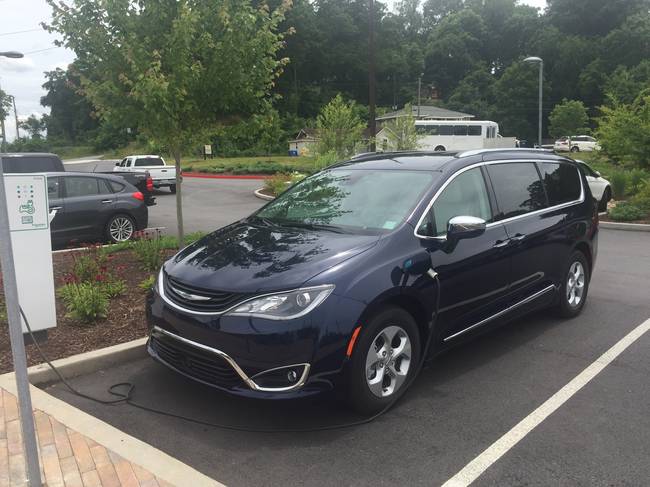RECOMMENDED VIDEOS

The New ECO-HEAT® Smart Internal Load Bank from Watlow
Watlow Electric Manufacturing Company

EV the Future
BYD COMPANY LIMITED

How Electric Car Wireless Charging Works
EcoCars4Sale

DreamEDGE Electric 3 Wheel TVC
DreamEDGE Sdn Bhd

ECO.3 Surface Guard
Hydros Solutions Ltd
Related Stories
Students compete to design energy-efficient, battery-powered rail vehicles
California makes huge investment in ‘widespread transportation electrification
EvoWheel converts almost any bicycle into an electric bike in just 30 seconds
The E-Fan X jet heralds an electric passenger plane revolution
Manta5’s new electric water bike lets you cycle on rivers and lakes
31 Jul, 2017

What will market-based electric vehicle charging look like?
Green Transportation & Logistics | UNITED STATES | 23 Jun, 2017
Published by : Eco Media Asia
The gas station of the future might actually be a brewery.
The other day, I was emailing with a friend about supporting a potential community-based electric vehicle charging project with a donation. His answer gave me pause for thought:
"To me, charging is insignificant until it becomes a part of the economy, i.e. an option at service stations. Individual charging stations seem a relatively insignificant (and destined to be shortlived) solution."
On the one hand, my friend had a point. Solutions in a market-based economy tend to catch on when someone has figured out how to monetize them. It's not unreasonable to expect that electric vehicles—and electric vehicle charging—will follow a similar pattern. That said, the idea that electric vehicle charging behavior and, by extension, electric vehicle charging economics will be anything like our "fueling" behavior for gas- or diesel-powered cars may prove to be a temporary holdover from the fossil fuel era.
Take this case in point:
I am currently on vacation in the mountains of North Carolina with our Pacifica plug-in hybrid minivan. (More updates on the whole road trip coming soon.) On an overnight jaunt to Asheville, I had the option of plugging in to a commercial charging station that would have set me back $8 for an hour's worth of charging. I couldn't bring myself to do it. I also had the option of visiting the fantastic New Belgium Brewery, plugging in for free, and kicking back with a cold beer before taking a stroll down the riverside and enjoying the incredible wildflower plantings and creek restoration that New Belgium has helped bring about. This second option was a resounding "heck yes," so I decided to take one for the team and go chill by the river.
Regarding my friend's original comment, this charge was no less a "part of the economy" than the first option. It just so happened that my "filling station" was a business that made its money from selling beer, not energy. I also trickle-charged from empty to full on most nights at our rental house in the mountains, using a regular wall socket, a solution that is equally a "part of the economy"; it just happens to be the utility that's getting paid.

Granted, a plug-in hybrid is a little different to a purely electric vehicle. I can just fill up on gas when I can't or don't want to pay for commercially available charging. If I were in my Nissan Leaf and found myself short of charge, the availability of an emergency $8 fill-up would have been gratefully appreciated. But with newer electric vehicles boasting 200+ miles of range, most electric vehicle drivers will still charge at home, at work or via other "convenience" charging most of the time. They'll also increasingly have the option of calling on friends, neighbors or friendly businesses for a free charge, should they get caught short.
Highway-based fast charging will absolutely still be needed if road tripping remains a thing, which is why the rapid expansion of Tesla's supercharger network is such an encouraging sign. But here too, it's worth noting that the economics often differ from the traditional "pay per unit of fuel" model that's served the oil industry so well. Tesla makes its money from selling cars. The superchargers, so far at least, are an investment designed to make the cars more attractive, not a profit center in and of themselves. And because most electric cars take 20 or 30 minutes to "fill" on even the fastest of chargers currently available, the viability of these highway chargers is directly related to the availability of complementary convenience charging. Every time a car charges at home, at work, or at a conveniently located brewery for example, it relieves pressure on the fast charging infrastructure: freeing it up for those who really need it.
Article from treehugger.com
by Sami Grover
